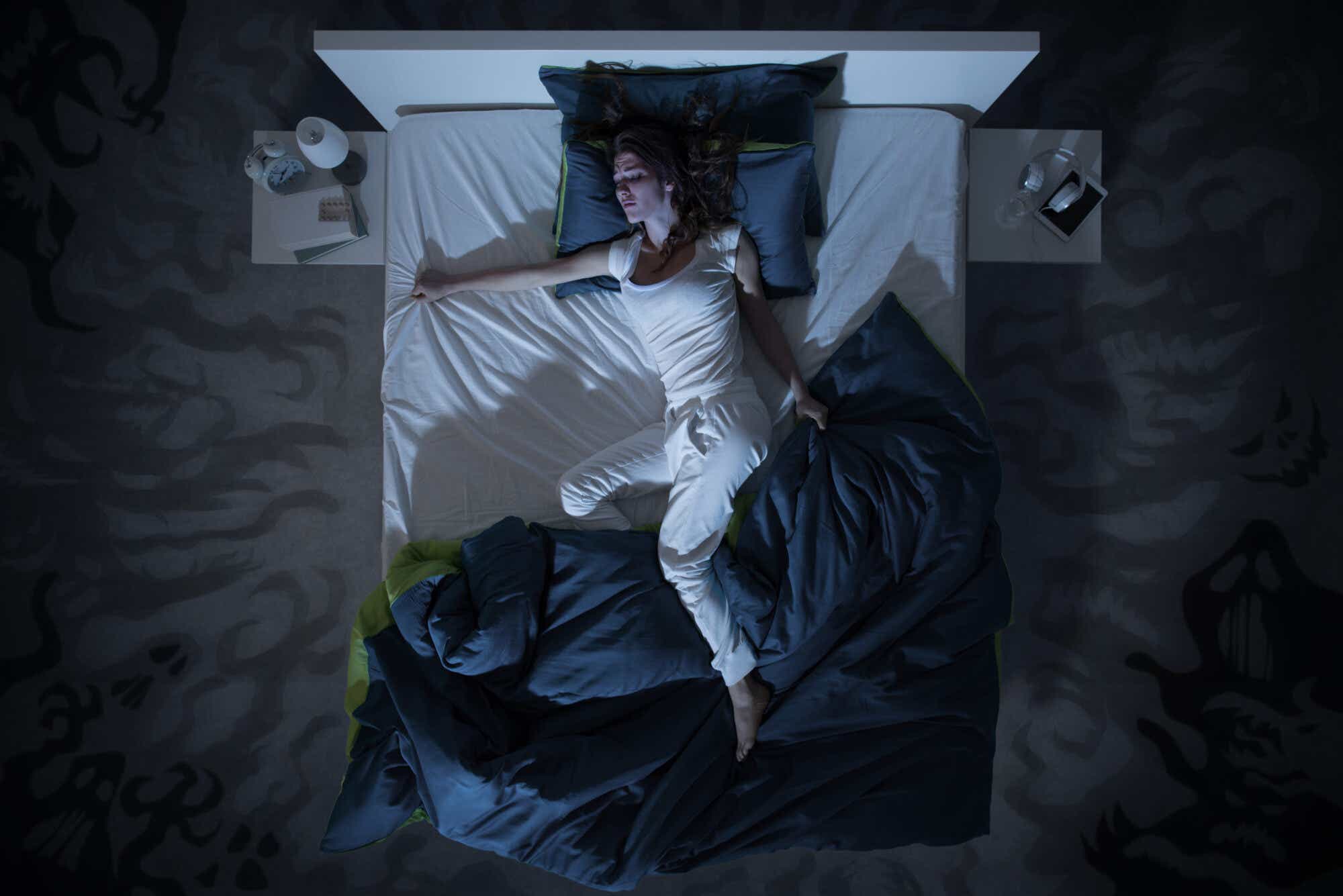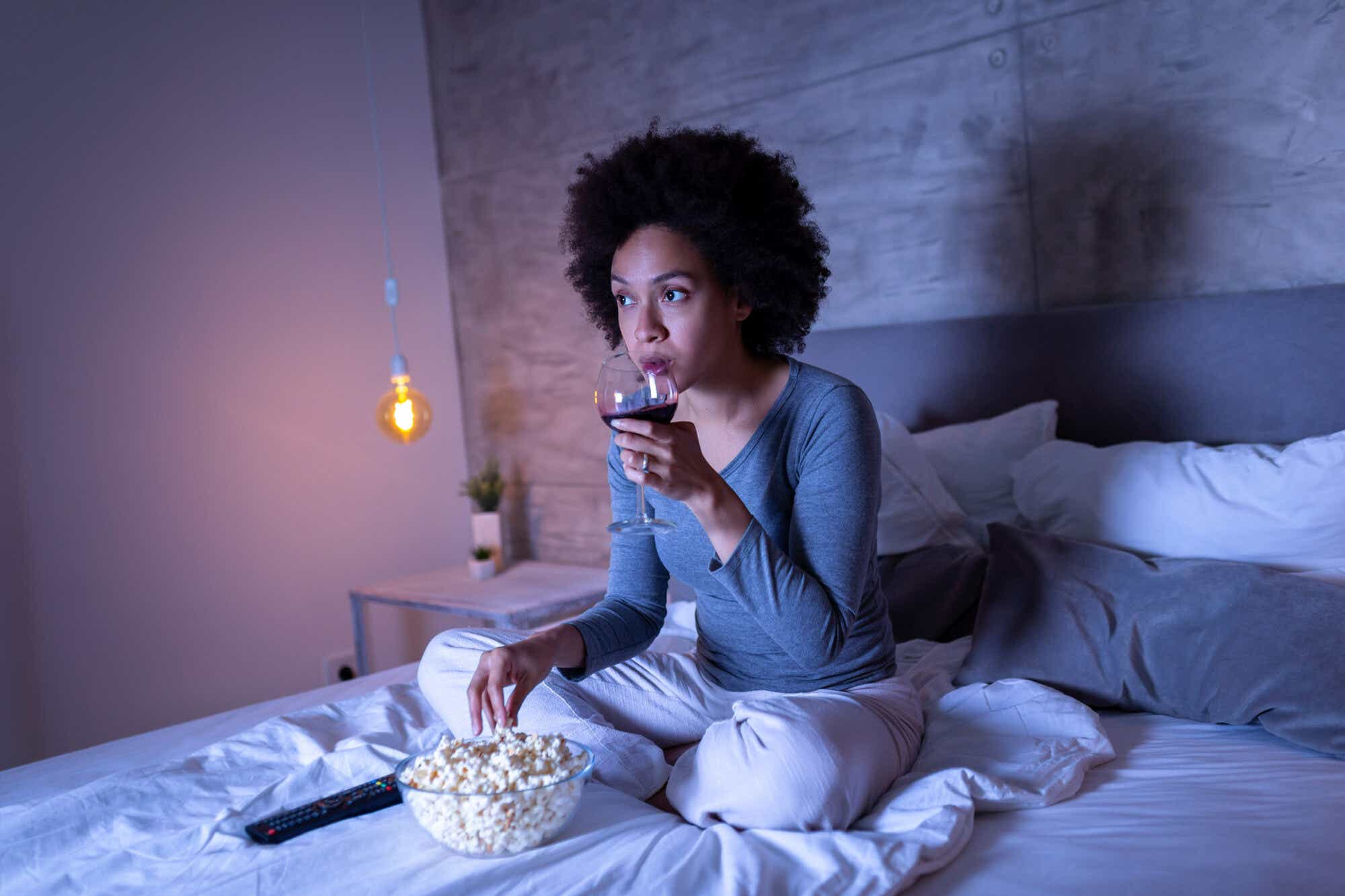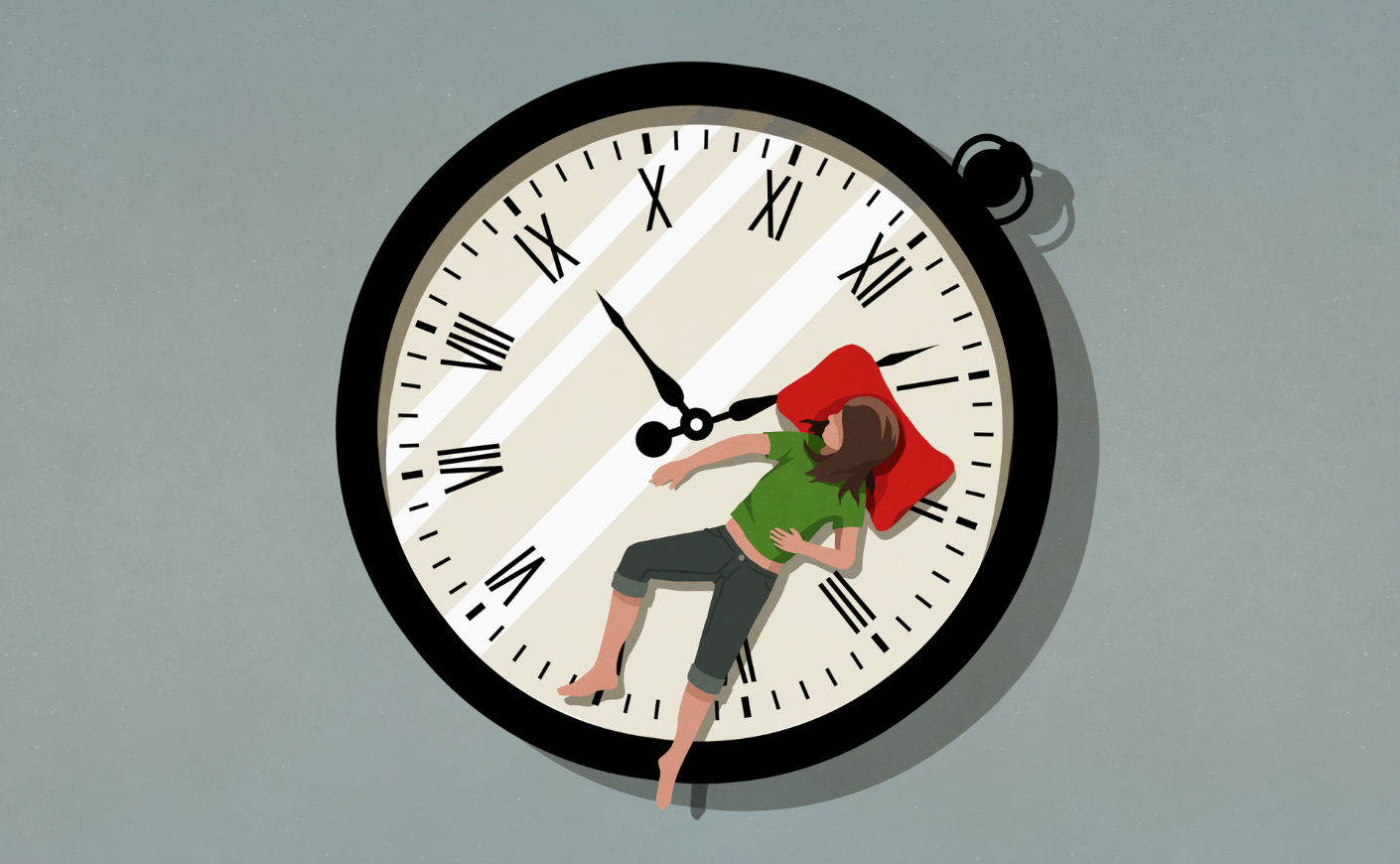If you’ve ever spent a night tossing and turning, willing for the sweet release of sleep to greet you — or dragged through the following day like a zombie — you know how painful it is to not get the rest you need. Many adults have to deal with a crappy night of sleep from time to time, but if you’re having trouble drifting off or staying asleep more than three nights a week for three months and it disrupts your daily life, you could suffer from insomnia.
If your doctor has diagnosed you with insomnia, you’re far from alone — even though it might feel that way when you’re in the dark and your partner or pet is snoozing soundly beside you. Studies have found that as many as 30 percent of adults deal with the chronic condition. The CDC says more than one in three Americans are sleep-deprived, and over 35 percent get less than seven hours of sleep per night. To be clear, even though they say misery loves company, knowing other people are tired is probably not making you feel any better rested. But what could help is knowing what causes insomnia. Although insomnia can’t always be cured by making behavioral changes, they’re often the first line of defense. Read on for some common causes of insomnia and what you can do to finally drift off.
What are the causes of insomnia?
Many factors can lead to insomnia, and it varies from person to person. It’s also important to note that insomnia can be just a symptom of a deeper issue — for instance, you might be experiencing insomnia because you’re stressed, depressed, or dealing with a major life event. We’ll get to those in a minute, but first, let’s talk about the causes of insomnia that you can take action to solve.
Why can’t I sleep?
When it comes to nighttime habits, it feels like there are two kinds of people: Those who pass out the instant their head hits the pillow, and the ones who struggle, tossing and turning and staring at the ceiling. We’re guessing you’re the second kind if you’re reading this article, and if that’s the case, then you might want to explore your sleep hygiene and how you can maximize it to fall asleep faster.
Insomnia can be caused by disruption to the body’s natural circadian rhythm, which is — to oversimplify quite a bit — the process by which we start to feel sleepy when it’s dark out and wake up when it gets light out.
Behavioral causes of insomnia
Your bedtime is all over the place
A lot of us have to wake up early for work, and then we want to sleep in on the weekends. Unfortunately, that’s not good for your sleep cycle. Experts call it “social jet lag,” and it disrupts your circadian rhythm. You should aim to go to bed and wake up around the same time every night — which we know might be easier said than done, but it makes a difference.
You’re looking at screens too much before bed
In this day and age, it feels impossible not to look at some kind of screen in the time before our heads hit the pillow, whether it’s watching TV after dinner or doomscrolling in bed. In fact, a 2013 study found that 90 percent of Americans aged 13-64 reported using electronics in the hour before bed. We can only imagine what that percentage is over a decade later when most people have a handheld screen with access to everything on the internet. The study also found that electronic use before bed “was significantly associated with self-reported insufficient/poor-quality sleep, difficulty staying asleep, and/or excessive daytime sleepiness” — and the worst culprits were “interactive” devices, like phones (compared to televisions, which you watch more passively).
That’s partially due to the blue light emitted by electronic devices. Our phones emit blue wavelengths, which help boost attention, reaction times, and mood during the day — but at night, they can disrupt the circadian rhythm. One Harvard study found that exposure to blue light, compared to green light, suppressed melatonin for about twice as long and shifted circadian rhythms by three hours (compared to 1.5 hours with green light).
The good news is that there’s one simple change you can make immediately to improve your sleep. The bad news is that it’s not that easy. Harvard says to cease screen time two to three hours before sleep time. If that seems impossible, at least switch your phone’s display settings to emit warm, red-tinted light, versus the stimulating blue light, when you’re scrolling before bed.
You’re not sleeping at the right temperature
Who doesn’t love climbing into bed and getting all snuggly under the covers? It turns out there’s a scientific basis behind this hibernation impulse: Our body temperature drops in the evening, which coincides with our melatonin production. So, sleeping in cooler temperatures can help your body produce melatonin, which in turn can help you fall asleep by making you sleepy. Also, being too hot when you sleep can wake you up, and decrease REM and deep sleep. A 2022 Gallup poll found that 14 percent of American adults report being too hot when they sleep “always” or “most of the time,” more than double the percentage that report being too cold. What’s more, being too hot is worse for sleep than being too cold: 46 percent of hot sleepers reported subpar sleep in 30 days, compared to 29 percent who rarely felt too hot when they slept. And when we’re considering poor sleep on any given night, being too hot is the third-most common cause of a most recent night’s lack of rest (after use of the bathroom and physical discomfort).

As for what’s the ideal sleeping temperature? It’s 65°F, though if that’s too chilly, experts say anywhere between 60-72°F should do the trick. (And you might not even need to crank your AC to achieve optimal temps, thanks to bedding solutions like natural temperature regulating blankets, lightweight fibers, and breathable weighted blankets.)
You had nicotine, alcohol, or caffeine too close to bedtime
Caffeine is a bit of a no-brainer: It’s a stimulant, and one many people consume early in the morning to feel more alert, so it stands to reason that consuming it too close to bedtime would make you feel wired. A 2013 study found that caffeine disrupted sleep even six hours before bedtime, so you’d want to limit your last cup of coffee (or can of Celsius, or your preferred caffeinated beverage) to at least six hours before bed. And if you’re sensitive to caffeine, don’t forget the other foods and beverages that contain it, including chocolate, some teas (even green tea), and some sodas.
Nicotine has also been shown to worsen sleep since consuming it causes an increase in alertness, wakefulness, attention, and focus because it stimulates the central nervous system and the cardiovascular system. (Not exactly what you want when you’re trying to wind down.) A 2019 study suggested that you should avoid nicotine at least four hours before bedtime.
It’s not uncommon to unwind with a glass of wine — or maybe there was a time when you got a little too buzzed during a night out and started to nod off at the table. Despite the fact that you’ve been knocked out after a couple of drinks before, study after study shows alcohol is bad for sleep. Even though alcohol is a depressant, your sleep cycle can get interrupted when your blood alcohol levels fluctuate. Alcohol suppresses REM sleep, which makes up about one-quarter of your total sleep, and alcohol is a diuretic, so it could make you get up to use the bathroom more often than if you hadn’t had a drink. Even though the idea of a nightcap might be tempting, experts say you should aim to have your last alcoholic beverage four to five hours before hitting the hay.

Medical causes of insomnia
Insomnia has so many potential causes, and it can sometimes be improved by making behavioral modifications. But other times, there may be an underlying medical issue, and insomnia is a symptom of a bigger problem, rather than the issue itself. This is what’s called secondary insomnia. Some medical conditions that disrupt sleep include dementia, overactive thyroid, Parkinson’s disease, cancer, and diabetes.
Insomnia and mental health
Insomnia may also be either caused by or an indicator of a mental health issue. Stress is a common cause of insomnia — which makes sense since if your mind is running amok thinking about a problem, it might be hard to fall asleep. Mental health conditions like anxiety and PTSD can also contribute to sleep troubles. Anxiety can cause racing thoughts, and PTSD can cause nightmares.
There’s also a link between depression and insomnia. A 2018 study noted that insomnia is seen in more than 90 percent of patients with clinical depression — although it’s hard to say for sure whether insomnia causes the depression, or the other way around. The study noted, “More than 50 percent of patients presenting to sleep disorder clinics have insomnia, and those who present with insomnia have a higher prevalence of major depressive disorder.”
If you’ve been dealing with insomnia, it might be time to visit your doctor to figure out the root cause and come up with some solutions, whether that be adjusting your sleep habits or trying medication.









